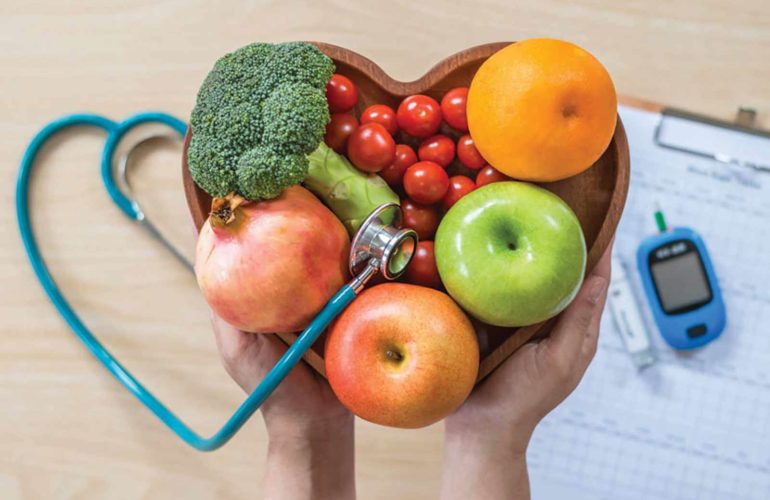Diabetes is a chronic disease that occurs when the pancreas does not produce enough insulin or when the body cannot effectively use the insulin it produces.
Some basics
- Insulin is a hormone that regulates blood sugar
- Type 2 diabetes is a disease in which the blood glucose or blood sugar levels are too high and body is unable to produce insulin in sufficient amounts to regulate blood sugar levels
- Recent studies have shown that it is possible to reverse it
- Through dietary changes and weight loss, you may be able to reach and hold normal blood sugar levels without medication
Types of diabetes
- Type 1
- Also known as insulin independent diabetes
- Causes can be genetics, infections, acute stress, immunological factors
- Type 2
- Also known as non insulin dependent diabetes
- Causes can be genetics, lifestyle factors, overweight, sedentary lifestyle and abdominal fat
- Type 3
- Gestational diabetes
- Occurs during pregnancy
Symptoms to find at a early age
- Hyperglycaemia (high blood glucose)
- Glycosuria (excess sugar in urine)
- Fluid and electrolyte imbalance
- Acidosis (too much acid in the body)
- Polyuria and nocturia (excess urine production at day and night)
- Polydipsia (excess thirst) and increase in hunger
- Dehydration
- Fatigue and loss of weight
How can we manage diabetes ?
- Eat a balanced and healthy diet
- Increase your physical activity
- Educate yourself on the causes and possible ways to improve your immunity
Nutritional requirement
- Complex carbs : 45-60 % of total calories
- Quality protein : 15-20 % of total calories
- Fat : 15-20 % of total calories
- Vitamins : Good source of vitamin C, E, D and B 12
- Minerals : Adequate amounts of chromium, zinc, sodium and potassium
- Dietary fiber : at least 20-30 grams of soluble fiber
- Fluid intake : Adequate dosage of fluids to keep you hydrated
Dietary guidelines
- Maintain weight 10 % lower than the ideal body weight
- Simple sugars like glucose, sucrose, lactose should be avoided
- Fruits with fructose content that is fit for consumption such as watermelon, gooseberries, guava etc should be included in the diet
- Complex carbs and dietary fiber should be included in the diet
- Soluble fiber including legumes, whole grains and fenugreek seeds should be included in the diet
- PUFA and MUFA over animal fat and hydrogenated fats are preferable
- Fish and chicken are preferable to meat
- Fried food consumption should be restricted
- Protein intake should be increased
- Avoid alcohol
- Avoid fasting and feasting
- Consumption of probiotics is good
- Junk and processed food are to be avoided
